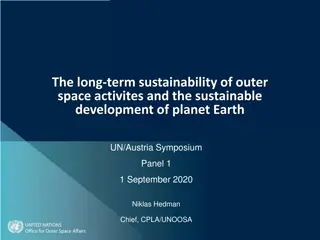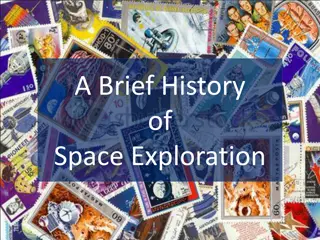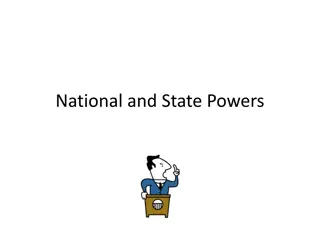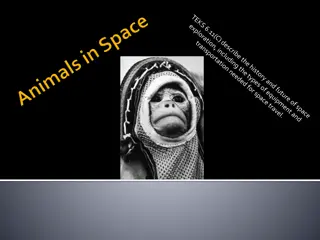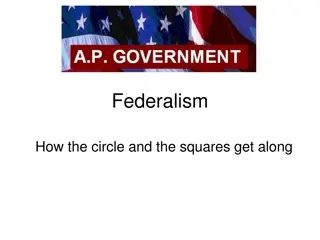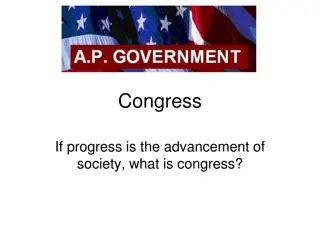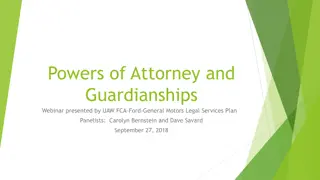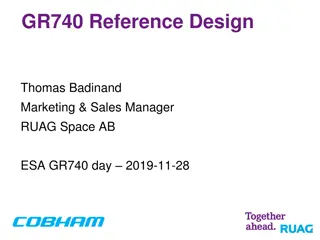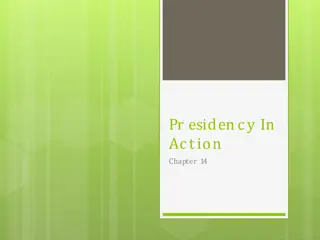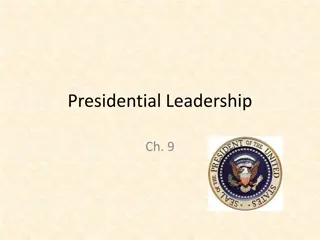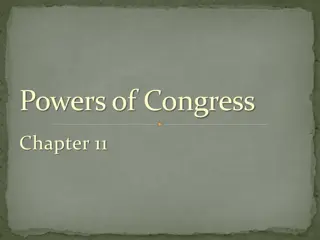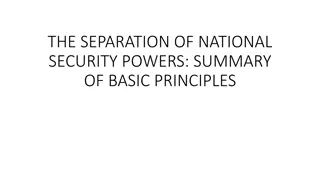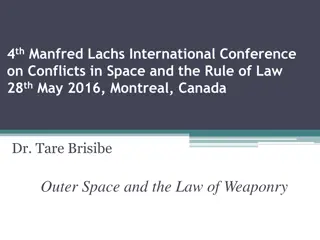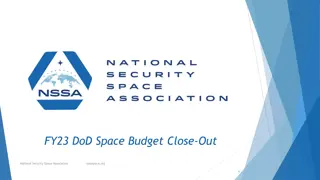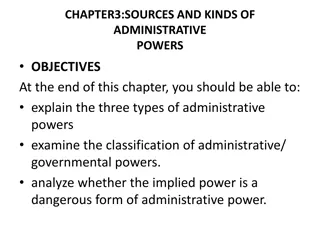TCBMs in Space: A Role for Middle Powers
Increased geopolitical friction in space among China, Russia, and the US is leading to considerations of counterspace operations. This poses risks of war in space, with multilateral efforts for establishing voluntary norms progressing slowly. Recommendations include enhancing transparency, international cooperation, and outreach, providing options for action by middle powers individually and jointly. Options for implementation include establishing contacts, focal points, characterizing the application of international law to space activities, and institutionalizing UN debris mitigation guidelines.
Download Presentation

Please find below an Image/Link to download the presentation.
The content on the website is provided AS IS for your information and personal use only. It may not be sold, licensed, or shared on other websites without obtaining consent from the author.If you encounter any issues during the download, it is possible that the publisher has removed the file from their server.
You are allowed to download the files provided on this website for personal or commercial use, subject to the condition that they are used lawfully. All files are the property of their respective owners.
The content on the website is provided AS IS for your information and personal use only. It may not be sold, licensed, or shared on other websites without obtaining consent from the author.
E N D
Presentation Transcript
TCBMs in Space: A Role for Middle Powers Fifth International Manfred Lachs Conference on Global Space Governance May 5-6, 2017 Theresa Hitchens
The Problem Increased geopolitical friction, particularly in space China, Russia, US consideration of counterspace ops offensive and defensive Iron Triangle of worst-case assumptions/mirror imaging Technology demos of potential weapons capabilities China, Russia and US (others following?) Ground-based: RF jamming, directed energy, kinetic Space-based: maneuvering satellites Risks of war in space growing
The Problem, contd Multilateral efforts to establish voluntary norms, TCBMs moving very slowly if at all 2013 UN GGE Report on TCBMs in space failure to launch Little new implementation; few reports on activities COPUOS LTS Working Group best practices effort slow 2018 end date, success not guaranteed (Iran) Measures not directly at security issues Question will be implementation Code of Conduct in limbo
GGE Reccomendations GGE made recommendations in five broad categories: Enhancing the transparency of outer space activities International cooperation including capacity building Consultative measures Outreach Coordination Including a joint meeting of the 4thand 1stCommittees GGE recommendations provide options for action by Middle Powers individually and jointly
Middle Power Options: GGE Implementation Establishment of contacts and focal points Including government and industry Report to UNGA/COPUOS Characterizing/socializing application of international law to space activities Manual of International Law Applicable to Military Uses (McGill/Adelaide) could be promoted @ int l fora, supported Call a prepcom to prepare 1st/4thOct. 2017 meeting
GGE Implementation, cont d Institutionalizing UN Debris Mitigation Guidelines National laws/regulations to require Capacity-building efforts for emerging space actors Policy, legal, technical assistance Enhancing notification of on-orbit activities Planned launches and final orbital parameters Scheduled maneuvers that might create risks Uncontrolled re-entries Orbital breakups Can be institutionalized and reported unilaterally
Middle Power Options: New Ideas Promoting/supporting research on globally- accessible SSA database Contribute to sensor development, improved propagation models, harmonization, database Support for development of STM options Legal, policy, technical considerations require research Contribute expertise on safe operations of smallsats Promote international discussion via COPUOS and Track 1.5 fora
Conclusions Vacuum in leadership on space governance can be filled by Middle Power actions Australia, Canada, Germany and the United Kingdom in position to lead new efforts Political/legal expertise Technical expertise Funds for independent research Near-term and mid-term possibilities for progress
Questions? Theresa Hitchens Senior Research Scholar Center for International and Security Studies at Maryland (CISSM), University of Maryland Email: theresa.hitchens0@gmail.com
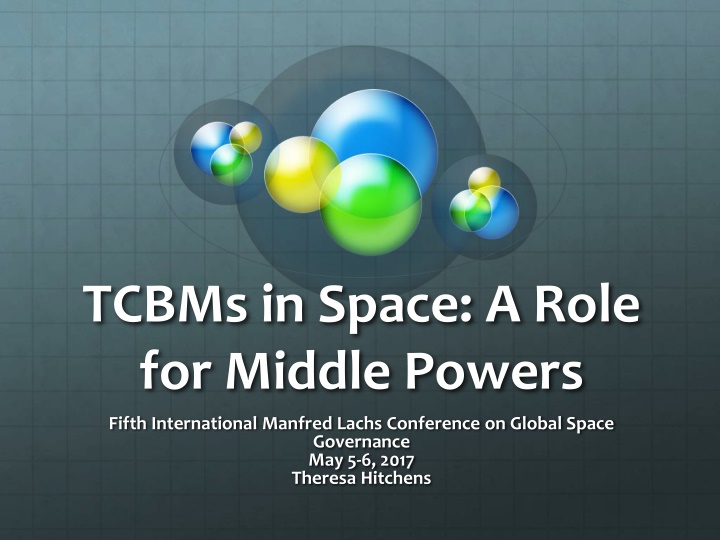

![READ⚡[PDF]✔ Emerging Space Powers: The New Space Programs of Asia, the Middle Ea](/thumb/21554/read-pdf-emerging-space-powers-the-new-space-programs-of-asia-the-middle-ea.jpg)
